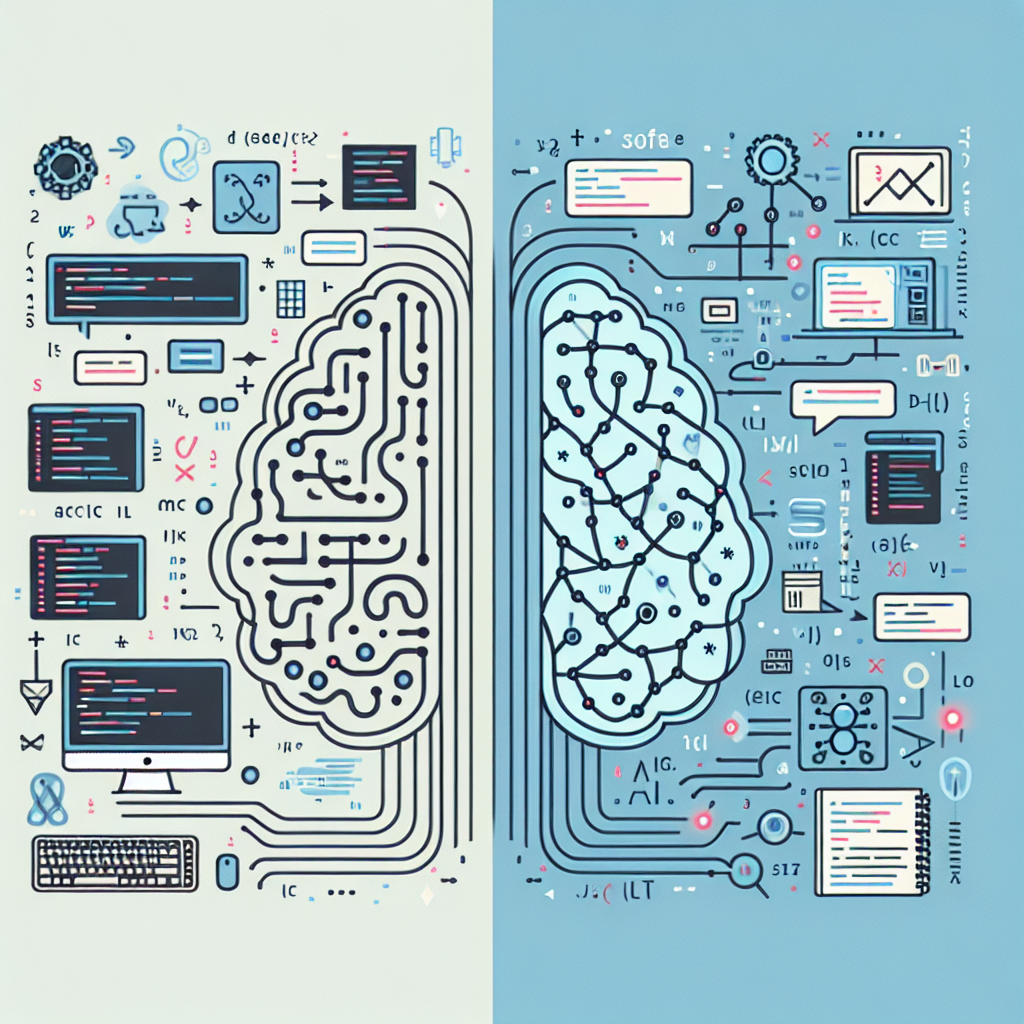[ad_1]
As technology evolves, the approach to software engineering also transforms. In recent years, machine learning (ML) has emerged as a central pillar of software engineering, transcending traditional algorithms. This article explores how machine learning is reshaping the landscape of modern software engineering, its applications, and the future trends it heralds.
The Evolution of Software Engineering
Historically, software engineering was driven primarily by algorithms—the step-by-step procedures for solving problems. With the advent of machine learning, a paradigm shift has occurred:
- From static algorithms to adaptive models
- From predefined outputs to predictions based on data
- From programming logic to training systems
What is Machine Learning?
Machine learning is a subset of artificial intelligence that enables machines to learn from and make predictions based on data. Instead of being explicitly programmed, these systems improve their performance over time with experience. Common categories of machine learning include:
- Supervised Learning: Learning from labeled data.
- Unsupervised Learning: Identifying patterns in unlabeled data.
- Reinforcement Learning: Learning through trial and error interactions with an environment.
“Machine learning is the science of getting computers to act without being explicitly programmed.” – Andrew Ng
Integrating Machine Learning into Software Engineering
Machine learning is integrated into various stages of software engineering, including:
1. Requirement Analysis
- Predict user requirements using historical data.
- Utilize natural language processing (NLP) to analyze feedback and documentation.
2. Design
- Automate system design elements with generative models.
- Use machine learning for architecture optimization.
3. Development
- Implement automated code generation.
- Enhance coding tasks with intelligent code completion tools.
4. Testing
- Use ML algorithms to identify testing gaps.
- Automate test case generation.
5. Maintenance
- Predict and detect software bugs.
- Analyze user behavior to enhance software.
Case Studies: Machine Learning in Action
Let’s look at some examples of how companies have effectively used machine learning in their software engineering processes.
AI-Powered Code Review Tools
Tools like CodeGuru from Amazon analyze source code to suggest best practices and identify bugs. They help teams maintain high-quality code standards.
Automated Testing with ML
Companies like Test.ai utilize machine learning to automate the generation of test scripts based on existing UI elements, increasing testing efficiency with every iteration.
Data Insights: A Numerical Perspective
| Year | Investment in ML (in Billion USD) | Impact on Software Development Time (%) | Growth of AI Startups (%) |
|---|---|---|---|
| 2018 | 5 | 25 | 30 |
| 2019 | 8 | 30 | 35 |
| 2020 | 20 | 40 | 45 |
| 2021 | 40 | 50 | 60 |
| 2022 | 60 | 60 | 70 |
Future Trends in Machine Learning and Software Engineering
As machine learning continues to evolve, several trends are emerging:
- Increased use of transfer learning to minimize training costs.
- Greater emphasis on explainability in AI decisions.
- Integration of ML with DevOps practices to enable continuous delivery.
- Expanding the use of federated learning for data privacy.
Conclusion
The advent of machine learning has significantly influenced the field of software engineering, extending beyond mere algorithms. By integrating machine learning paradigms into development processes, organizations can enhance efficiency, reduce time to market, and deliver software solutions that adapt to user needs. As we move forward, the synergy between machine learning and software engineering will continue to flourish, shaping innovative solutions and redefining how software is built and maintained.
Frequently Asked Questions (FAQs)
Q1: How does machine learning differ from traditional programming?
Machine learning systems learn from data to make predictions or decisions without being explicitly programmed, while traditional programming relies on predefined rules and instructions.
Q2: Can machine learning improve software quality?
Yes, machine learning can enhance software quality by predicting bugs, automating testing processes, and optimizing code quality through suggestions.
Q3: What programming languages are commonly used in ML?
Common programming languages for machine learning include Python, R, Java, and C++. Python is the most popular due to its rich ecosystem of libraries and frameworks.
Q4: Is machine learning necessary for all software projects?
No, while machine learning offers numerous benefits, it is not necessary for all projects. The choice to use ML should depend on project requirements and available data.
[ad_2]
